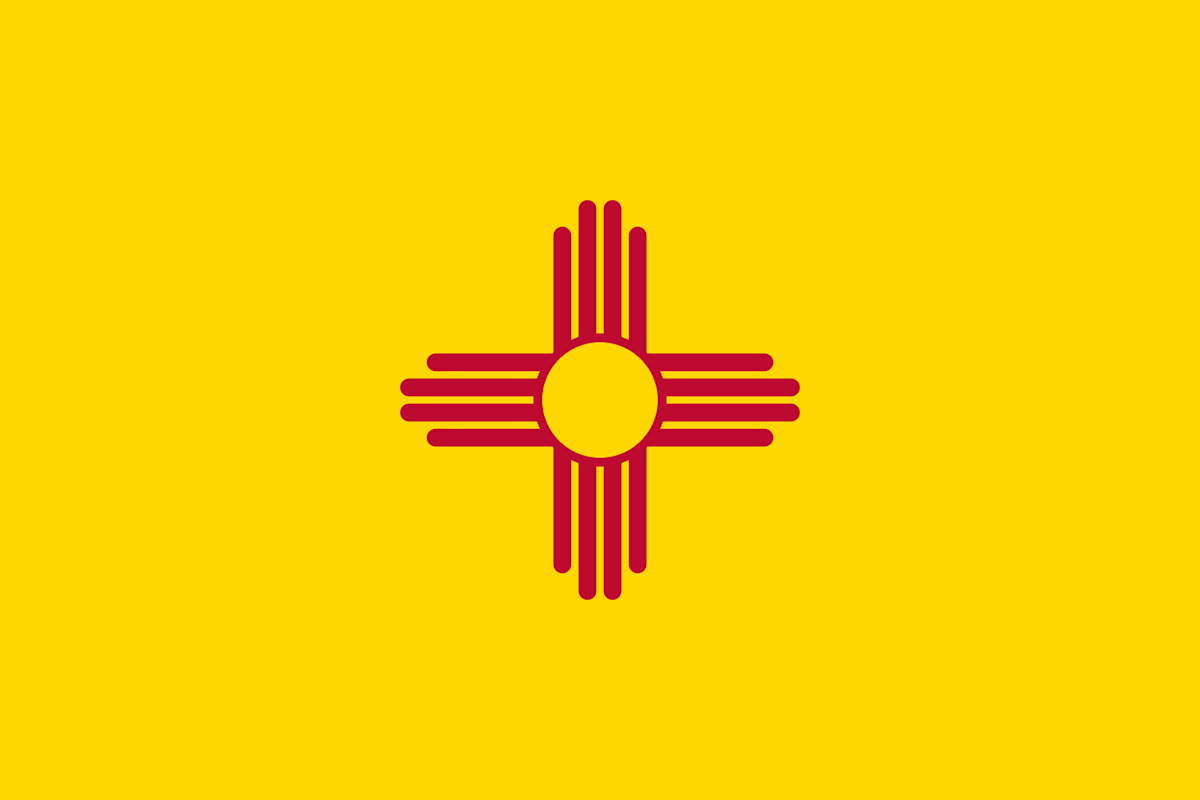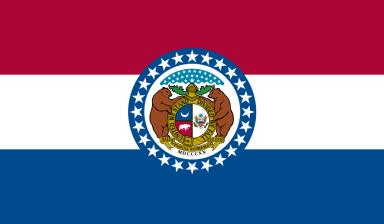New Mexico Employment and Labor Laws

The COVID-19 pandemic dampened economic growth nationwide, even sparking fears of recession. While many parts of the country are struggling to bounce back, the state of New Mexico has shown resilience and continues to experience economic expansion.
A report released by the state’s Department of Workforce Solutions showed that 20,900 non-agricultural jobs were added from May 2022 to May 2023. This translated to a 2.5% rise — the largest increase in New Mexico’s history.
This robust job growth shows that the Land of Enchantment is enacting all the right policies when it comes to the economy, labor, and employment. Interestingly, this fits the state’s motto, “crescit eundo” (which translates to “it grows as it goes”).
It goes without saying that employees in the state should be aware of local work-related policies, statutes, and rules and regulations. With this in mind, this article discusses all the vital information — such as wages, work hours, and grounds for wrongful termination — that a New Mexican employee should know.
New Mexico Wage and Hour Laws
Minimum Wage
In 2019, Governor Michelle Lujan Grisham signed into law an incremental increase in the statewide minimum wage — the first since 2009. From $7.50 to $9 an hour in 2020, it became $10.50 an hour in 2021. In January 2022, it was hiked to $11.50 until it became $12 at the start of 2023.
Although some jurisdictions — such as the state capital Albuquerque, the cities of Las Cruces and Santa Fe, and Santa Fe County — impose their own minimum wage, the state makes sure that employers enforce the highest available rate.
For tipped employees, the minimum hourly wage rate has been $3 since 2023. But if their hourly rate and tips do not equal at least $12 per hour, their employer must pay the difference.
Workers who are under 20 years of age may be paid a special minimum wage of $4.25 per hour for their first 90 days of employment. After this period, or when they turn 20 — whichever comes first — they are entitled to a raise up to the full minimum wage.
Moreover, employers must pay their student workers at least 85% of the minimum wage, provided that these students are registered under the Department of Labor’s Full-Time Student Program. Those 16 or older and enrolled in a vocational school are entitled to at least 75% of the regular minimum wage.
Nonprofit and educational organizations can likewise obtain a certificate stating that they can hire workers entitled to at least 85% of the minimum wage. Meanwhile, employers can pay a sub-minimum salary to their workers with mental, physical, or other disabilities that affect their quality or amount of work. They must, however, also obtain the corresponding certificate.
Exemptions
The following workers and industries are exempt from state minimum wage requirements:
White collar employees (e.g., administrative workers, professionals, and bona fide executives).
Salespeople compensated on a commission basis.
Volunteer workers at educational, charitable, religious, or nonprofit organizations.
Employees working and residing at charitable, religious, and nonprofit organizations.
Seasonal employees, provided they have a valid certificate from the Labor Relations Division of the Workforce Solutions Department.
Those working in agriculture and/or engaged in the handling of unmanufactured agricultural and horticultural products and related processes.
Forms, Frequency, and Statement of Wage Payments
Wages in New Mexico can be paid in cash, checks, payroll vouchers, or bank crafts that are convertible into cash on demand. Employers can also pay their workers through direct deposit in some cases.
When it comes to wage payment frequency, employees are usually paid semi-monthly. Some may be paid every month or whichever is specified in an existing collective bargaining agreement. Regardless of the payment frequency, employers must explain this to their employees in advance, and both parties should reach an agreement.
Employers should provide a written receipt showing pay-related information, including the business name, the hours worked by the employee, and their gross pay. All earned wages and benefits, as well as an itemized list of deductions, should also be cited.
Payroll Deductions
State, federal, and social security taxes can be deducted from an employee’s salary. Apart from these, no other deductions can be made to an employee’s wages without their written authorization or a court order.
Only the deductions ordered by the court or covered under employee-authorized worker benefits may reduce their net pay below the minimum wage. Besides these, there should be no circumstance in which an employee’s net salary falls below the minimum wage.
Hours of Work, Overtime, and Breaks
Generally, employees work for eight hours a day or a total of 40 hours per week, with some being required to work overtime. However, in New Mexico, some employees are exempt from overtime work, including those in the sectors of agriculture, aviation, and cotton ginning. Workers who do not fit the description of “employee” under the Minimum Wage Act are likewise exempt from working additional hours.
If an employer requires overtime, the employee is paid for every hour they work beyond their regular hours. The hourly overtime rate is usually equivalent to 1.5 of their regular hourly pay. This means that if a worker’s regular hourly wage is $10, they should be paid $15 for every overtime hour.
Employees can volunteer to work overtime, but they are not allowed under the law to waive their right to the 1.5 hourly wage multiplier. Moreover, their employer cannot substitute overtime pay with extra time off.
There is also no state law mandating employers to have a time clock. However, it would be their responsibility to keep records of the actual number of hours that each employee has worked for at least four years.
Additionally, there are no statutes requiring employers to provide coffee or lunch breaks and rest periods. But if employees take breaks that are less than 30 minutes, no salary deductions should be made.
Leaves
The Healthy Workplaces Act of 2021 mandates all private employers in New Mexico, regardless of their business size, to allow their employees to accrue and use paid or earned sick leaves. Employees can use this benefit for various reasons, including when they or their family member falls ill or sustains an injury, or in cases of legal and family issues.
The HWA does not set a limit on how many hours of sick leave an employee can earn; however, the usage is capped at 64 hours per calendar year. At the same time, up to 64 hours can carry over to the next year if they were accrued but not used in the prior year.
Employee rights protected by the HWA are non-waivable even by collective bargaining agreements. Those covered under the HWA are full-time, part-time, seasonal, and temporary employees.
Final Pay
If an employee voluntarily resigns from their job, they should receive their wages for the hours they worked on the next payday. If they are terminated while under a contract with a fixed and definite amount, their salary should be ready within five days from the date they leave the company.
The wages of employees who earn by task, per project, or through commissions should be paid within 10 days of their discharge. Meanwhile, the unpaid wages of a worker who passes away should be given to their surviving spouse.
Child Labor
Generally, minors under 16 should obtain work permits, and they can only apply for and be considered for certain industries or positions. Among the places they cannot work at are underground mines or quarries and any place where explosives are used. They are also banned at workplaces that are dangerous to lives and limbs or may be injurious to their morals or health.
Meanwhile, 14- to 15-year-olds are prohibited at workplaces with any of the following work hour arrangements:
Before 7 a.m. or after 7 p.m. during the school year or after 9 p.m. outside the school year.
Beyond three hours daily on school days.
More than eight hours daily outside school days.
Beyond 18 hours during school weeks.
More than 40 hours during non-school weeks.
Fair Employment Practices
The New Mexico Human Rights Act prohibits any form of employment-related prejudice based on one’s race, color, ancestry, or national origin. No discrimination against certain religions, age groups, sexual orientations, or gender identities should be observed in the workplace. Any discrimination or harassment based on an employee’s physical or mental handicap or serious medical condition; pregnancy, childbirth, or related conditions; and spousal affiliation are not allowed. Retaliation against an employee who opposes such discriminatory acts, files a complaint, or participates in any related proceedings is likewise forbidden.
Equal Pay
An employer is prohibited from discriminating against their employees based on their sex. But exceptions on pay preference may apply when there is a merit or seniority system or if the system being followed measures earnings by production quality or quantity.
Hiring Rules and Regulations
In 2019, New Mexico adopted the Criminal Offender Employment Act, more commonly known as the “Ban the Box” law. Under this, employers using electronic or written applications are barred from inquiring about a job applicant’s criminal history or conviction. They can only take this kind of information into consideration after reviewing the person’s application and discussing their possible employment with them.
Additionally, employers cannot access records related to an employee’s arrests that did not result in any charges. The only time they may be allowed to do so is if they can provide a notarized release to access them. The content of the records, however, should remain confidential.
Whenever there are new hires or recalled workers, an employer must report each instance and certain employees’ details to the New Mexico New Hire Directory. These must be done within 20 days of the hiring or re-employment date. Reports transmitted electronically should be submitted twice a month, no more than 16 days apart.
New Mexico Workplace Rules and Requirements
Required Postings
State and federal laws require employers to put up posters on employees’ rights in the workplace. These can be obtained free of charge at state agencies. Some of the mandatory postings are as follows:
State-Specific Posters and Notices
2023 New Mexico Minimum Wage Act Summary.
New Mexico Job and Health Safety Protection.
New Mexico Workers’ Compensation Act (with a supply of Notice of Accident forms).
Human Rights Act Poster.
Unemployment Insurance Notice.
Federal Posters and Notices
Federal Minimum Wage.
Equal Employment Opportunity Is the Law.
Job Safety and Health Protection.
Family Medical Leave Act.
Rules Regarding Smoke-Free Workplaces
Under the Dee Johnson Clean Indoor Air Act, smoking and using electronic cigarettes or e-cigarettes are not allowed in enclosed indoor workplaces. A “No Smoking” sign should be posted at the entrances of these areas, as applicable.
That said, an employer may designate an outdoor area where employees may smoke, provided that this space is within a reasonable distance from any of the workplace’s ventilation systems, windows, or entry and exit points. A “Smoking Permitted” signage should also be clearly visible at the entryway.
Workplace Drug Testing
Medical and recreational marijuana are legal in New Mexico. However, this does not mean that the use of the substance or participation in related activities are permitted in the workplace.
Is New Mexico an At-Will Employment State?
New Mexico follows the at-will doctrine, and both public and private employers are required to recognize this. At-will employment means that an employer can dismiss an employee from their position at any time and for any reason, even without notice. Likewise, an employee can quit whenever, as long as their reason is lawful.
What Qualifies as Wrongful Termination in New Mexico?
While the at-will employment doctrine gives considerable leeway for both employers and employees, there are exceptions to this rule. It does not entitle employers to violate anti-discrimination laws or other legal protections for employees. This means they cannot deny job opportunities to applicants or treat employees unfairly for being members of a protected class.
Additionally, employees cannot be dismissed at-will if they have a written, oral, or implied agreement guaranteeing their job security or limiting their employer’s power to discharge them; there should be a good reason to terminate their job contract.
It is also against the law for an employer to fire an employee for reasons that violate public policy. Some common scenarios that lead to wrongful termination as a form of employer retaliation include:
An employee filing a workers’ compensation claim.
An employee reporting an illegal activity carried out by their employer (whistleblowing).
An employee opposing discriminatory or other unlawful practices in the workplace.
An employee taking part in workplace investigations.
A prime example of wrongful termination is the November 2020 case of Smith v. New Mexico. Jennifer Smith had been working at the state’s Department of Health when she was fired for reporting its misuse of federal funds. She was thereafter reprimanded and eventually dismissed from her position. She then filed a wrongful termination lawsuit against the department, claiming that it violated the Whistleblower Protection Act. A Santa Fe jury ultimately ruled in her favor and awarded her over $80,000 in lost wages and benefits.
How Do You Report an Employer in New Mexico for Wrongful Termination?
If you got fired due to discrimination, you can file a complaint with the Human Rights Bureau of the state’s Department of Workforce Solutions. The steps involved are laid out here:
Fill out and submit the Discrimination Inquiry Form.
Wait for a civil rights investigator to review it and reach out to you.
If necessary, file a formal Charge of Discrimination within 300 days of the most recent instance of workplace discrimination you’ve experienced.
If you have a lawyer on your side, they can also file a formal Charge of Discrimination on your behalf. Moreover, they can help you submit a federal discrimination complaint to the Equal Employment Opportunity Commission.
What Is the Statute of Limitations for Wrongful Termination Cases in New Mexico?
As stated in the previous section, a victim of wrongful termination due to discrimination is given 300 days to file a claim with the Human Rights Bureau. If they want to bring up the complaint with EEOC, they only have 180 days to do so.
Meanwhile, a fired worker is given a timeframe of four years (for oral contracts) or six years (for written ones) to sue their employer if their termination is in violation of their employment contract.
There are also instances where an employee’s wrongful termination stemmed from a personal injury. In cases like this, they have three years from the date of the incident that caused their injury to file a lawsuit.
How Much Can Someone Sue an Employer in New Mexico for Wrongful Termination?
Employees who were wrongfully terminated can demand compensatory damages, which are classified as either economic or non-economic. Economic damages typically involve financial losses like lost wages and benefits. Meanwhile, non-economic damages refer to the emotional trauma, pain and suffering, inconvenience, and other similar experiences an employee has to deal with because they lost their job.
The court also considers the attorney fees incurred when awarding compensatory damages. Additionally, it may award punitive damages if there is a gross violation of an employee’s rights. Note that New Mexico does not impose a cap on punitive damages.
On average, the amount of compensation a victim can receive in a wrongful termination case ranges from $5,000 to $100,000. There is also a civil penalty of up to $5,000 for each violation if retaliation is involved. If a case involves discrimination, the EEOC can award anything between $50,000 and $300,000, depending on the business’s number of employees.
Resources for Employees in New Mexico
New Mexico Department of Workforce Solutions
This state agency is responsible for the implementation of workers’ rights on wages and working hours. It also has a Labor Relations Division that enforces scale wages per the Minimum Wage Act. Moreover, the department administers seminars and materials on compliance requirements and various labor laws. For more information, you may contact the agency online.
New Mexico Legal Aid
This organization provides free legal assistance to individuals and families with limited resources, including those dealing with employment issues. Its main office in Albuquerque can be reached at 505-243-7871. If you are located elsewhere within the state, you can check New Mexico Legal Aid’s other office locations on its website.
Law Help New Mexico
Another organization that provides low-income and disadvantaged individuals with access to free and reliable information on civil law matters is Law Help New Mexico. It works with groups like New Mexico Legal Aid, Disability Rights New Mexico, and the State Bar of New Mexico. It directs state residents to local organizations that provide legal and social services at no or minimal charge.
Expertise.com StaffAuthor
Step into the world of Expertise.com, your go-to hub for credible insights. We don't take accuracy lightly around here. Our squad of expert reviewers, each a maestro in their field, has given the green light to every single article you'll find. From rigorous fact-checking to meticulous evaluations of service providers, we've got it all covered. So feel free to dive in and explore. The information you'll uncover has been stamped with the seal of approval by our top-notch experts.




